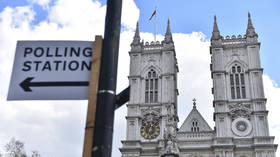UK general election 2019: A brief guide to the upcoming campaign

The next UK general election is to be held on December 12. Here’s what Conservatives, Labour, Liberal Democrats, and the Brexit Party will each be hoping to achieve from the campaign.
Conservative Party
The Conservative Party will begin this election comfortably ahead in the opinion polls, but not quite so far ahead as you might think. Human beings are hard-wired to remember the shocking results and so we’re more likely to notice the large leads. MORI gave the Conservatives a 17% lead over Labour; YouGov 11%, and Survation 8%. Most people will remember the 17, but forget the 8.
But in 2017, the Conservatives had an even bigger lead at the start of the campaign, only to see that lead evaporate because of a hung parliament which has paralysed decision-making for the last couple of years. I don’t believe that 2019 is comparable to 2017: Theresa May’s weaknesses and frailties as a leader weren’t noticed until the 2017 campaign. Boris Johnson is much more of a known quantity, love him or hate him.
Even so, the Conservatives must not be complacent. They are in the lead, and they will be attacked from both sides. Every other party stands to gain by attacking the party that is in front. The Brexit Party will be a far greater threat in 2019 than a dying UKIP was in 2017. Conservatives stand to lose seats in London, Scotland, and in some strongly Remain-backing areas. To compensate, they’ll need to win seats they’ve rarely or never won before. After 9 years in government, it’s rare for any political party to be making gains, but that’s what the Conservatives need to do to win.
Worse still, they have no potential coalition partner in the event of a hung parliament unless the Brexit Party succeeds. They may start from a good position, but they cannot afford complacency.
Conservative target: To win an overall majority large enough to be able to govern without interference.
Also on rt.com Labour ‘sided with Putin’ and would subject UK to ‘horror show,’ BoJo tells voters at launch of election campaignLabour Party
Labour has a problem. They don’t look like a party that’s ready to govern. Jeremy Corbyn is (according to MORI) the joint most unpopular opposition leader ever with a net minus-60 approval rating. The party’s Brexit policy seems confused and outdated. Just 15% prefer Corbyn’s Brexit policy to Johnson’s or Swinson’s. Labour are facing threats from the Conservatives in Leave areas, the Lib Dems in strongly Remain areas, and even from the Brexit Party in some of their heartlands. They don’t have a 2017-style binary Labour-Conservative battle.
The short-term prognosis for Labour looks bleak in terms of seat numbers, but if the Conservatives fail to secure an overall majority then Labour have more obvious partners in government as they could probably work with the Lib Dems and SNP.
Labour target: To deprive Boris Johnson of an overall majority, and secure a Labour prime minister with a minority government
Also on rt.com Tory government’s plan to stage £120m ‘festival of Brexit’ branded ‘waste of money’Liberal Democrats
The Liberal Democrats have surged in the opinion polls. Gone are the days of 2010-2015, when they were virtually obliterated because of their role in the coalition government and voting for tuition fees after campaigning against them. They have a clear niche: to appeal to those people who not only voted to remain in the EU, but who are determined to ignore the result.
They have plenty of viable gains, and have seats to defend where MPs of other parties defected to them. Outside of Brexit, many people have forgotten what the Lib Dems actually stand for. This could cause them problems as they try to appeal to ex-Conservative and ex-Labour voters at the same time.
The Liberal Democrat strategy is nothing if not ambitious. Their own polling shows that they couldn’t beat Jacob Rees-Mogg in North-East Somerset, but they’re making a lot of noise about working hard at it. Stranger surprises have happened in politics, but more likely they want the media to see them as viable contenders.
If we work together, and back @nickcoatesnes we will beat Jacob Rees-Mogg in North East Somerset #VoteNickCoates#StopMoggpic.twitter.com/ymubNsMVg8
— BathNES Lib Dems 🔶 (@bathnesld) October 30, 2019
Their biggest risk is winning the battle, yet losing the war. A Liberal Democrat resurgence could help the Conservatives to beat Labour in key Labour-held marginal seats, and ironically cause a Conservative government.
Lib Dem target: To win 50+ seats, whilst preventing a Conservative overall majority
Also on rt.com PM Johnson ‘rules out’ pact with Farage, saying it would only benefit CorbynBrexit Party
It’s easy to forget that the Brexit Party won the last major national election in the UK. Having won the European elections, they’ll be hoping to press on and convert that into seats at Westminster. They have a problem though: the first-past-the-post electoral system really hurts parties which don’t have a traditional base of support in specific parts of the country. Even if they win 10% to 15% of the vote, as their current poll rating suggests (and one outlying poll has them at just 7%), they could potentially get no seats at all. But gains would come pretty fast if they could sneak above 20%, where they had been polling just a few months ago. Otherwise, their best hopes will come in traditional Labour working-class seats which voted strongly for Leave. In such constituencies, there’s often a residual hatred of Conservatives dating back to Margaret Thatcher’s government, but Labour has made themselves unpopular with their own heartlands. The Brexit Party will hope to benefit.
The first week of the campaign will be vital for the Brexit Party. If their message (‘no deal’ rather than Boris’ deal) resonates, and their poll ratings improve, they’ll be a serious player in this election. If they don’t make a very fast start at this election, then their vote will likely be squeezed by voters thinking about whether Johnson or Corbyn should be prime minister.
Meanwhile, they’ve got tough questions to answer about where they stand. Do they stand in every seat, maximising publicity but risking Labour and Lib Dems snatching key marginals from the Conservatives? Or do they step aside in some, to avoid the risk of Jeremy Corbyn becoming prime minister? They have serious questions to answer.
Brexit Party target: To gain a foothold at Westminster, ideally being the kingmakers in a hung parliament
By Jonathan Arnott, a former independent Member of the European Parliament
Think your friends would be interested? Share this story!














